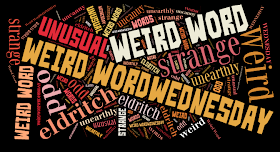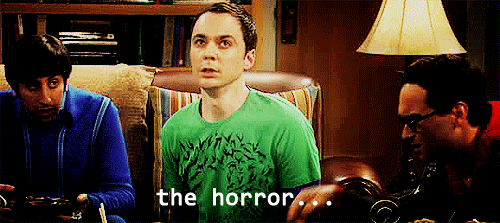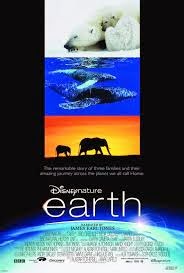Perhaps there is some sort of secret homing instinct in books that brings them to their perfect readers -schaffer/barrows
Wednesday, April 30, 2014
Tuesday, April 29, 2014
Summer Reading Displays
With Spring just barely arriving, Summer seems a long ways off. But for those looking to create dynamic summer reading displays, now is the time to start gathering ideas. Whether you have limited space, resources and time or are blessed with many bulletin boards and counter space, perhaps these ideas will inspire you.
Use summertime props to bring atmosphere to your display:
You can always uses these ideas in a display cabinet too!
Here are some Bulletin Boards that help catch the eye and the imagination.
 |
| Short on shelf space? Try bringing in a prop that will grab everyone's attention! From the Summer Reading Program display Lake Benton Library |
 |
| Keep the light with this cheerful sign! From rachelmoani.com |
Use summertime props to bring atmosphere to your display:
 |
| This display uses coffee grounds, foamboard, a fancy planter and some creativity. From: http://www.pinterest.com/pin/161777811587293477/ |
 |
| Use colourful towels, Kites and big, bright letters to catch the eye. by Hackley Public Library on Flickr |
 |
| Entice your audience with a reusable cloth or felt tablecloth and set the stage for for a summertime adventure...between the pages of a good book, From Pinterest |
 |
| Found on librarydisplayideas.pbworks.com |
  |
| Different textures and bright colours add interest to this display. From Enokson on Flickr |
 |
| A Broader view of the same display Enokson on Flickr |
You can always uses these ideas in a display cabinet too!
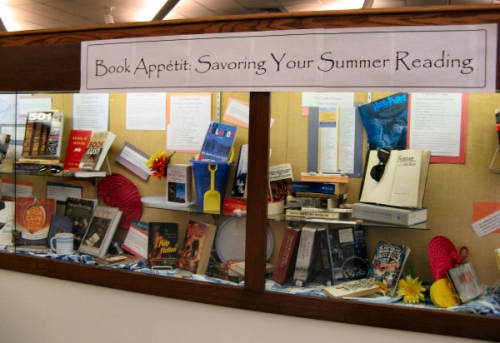 |
| From Montana State Library |
Here are some Bulletin Boards that help catch the eye and the imagination.
 |
| Found on schoollibrarydisplays.blogspot.com |
 |
| Found on lorri6303.blogspot.com |
 |
| Another version. From Pinterest. |
 | ||||||
Books were placed with the "destination" or where the reader will go when they read the book over their summer vacation. From Pinterest.
|
 |
| With a blank book template, students can take lead and recommend books to each other. Found on meri.verymeri.com |
Monday, April 28, 2014
Friday, April 25, 2014
Thursday, April 24, 2014
Most Commonly Misused Words And Phrases
Reposted from City-Data Forum
"Let’s get right to the point. Misusing words makes you look less intelligent than you really are. If you misuse words in your writing, it can damage your credibility and diminish the point you’re trying to make. Even worse, it could completely change the meaning of the sentence".
What follows is a list of the 32 most commonly misused words and phrases.
1. Accept/Except- Although these two words sound alike (they’re homophones), they have two completely different meanings. “Accept” means to willingly receive something (accept a present.) “Except” means to exclude something (I’ll take all of the books except the one with the red cover.)
2. Affect/Effect- The way you “affect” someone can have an “effect” on them. “Affect” is usually a verb and “Effect” is a noun.
3. Alright- If you use “alright,” go to the chalkboard and write “Alright is not a word” 100 times.
4. Capital/Capitol- “Capitol” generally refers to an official building. “Capital” can mean the city which serves as a seat of government or money or property owned by a company. “Capital” can also mean “punishable by death.”
5. Complement/Compliment- I often must compliment my wife on how her love for cooking perfectly complements my love for grocery shopping.
6. Comprise/Compose- The article I’m composing comprises 32 parts.
7. Could Of- It’s “could have” not “could of.” When you hear people talking, they’re saying “could’ve.” Got it?
8. Desert/Dessert- A desert is a hot, dry patch of sand. Dessert, on the other hand, is the sweet, fatty substance you eat at the end of your meal.
9. Discreet/Discrete- We can break people into two discrete (separate) groups, the discreet (secretive) and indiscreet.
10. Emigrate/Immigrate- If I leave this country to move to Europe, the leaving is emigrating and the arriving is immigrating.
11. Elicit/Illicit- Some people post illicit things on message boards to elicit outrageous reactions from others.
12. Farther/Further- Farther is used for physical distance, whereas further means to a greater degree.
13. Fewer/Less- Use fewer when referring to something that can be counted one-by-one. Use less when it’s something that doesn’t lend itself to a simple numeric amount.
14. Flair/Flare- A flair is a talent, while a flare is a burst (of anger, fire, etc.)
15. i.e/e.g- I.e. is used to say “in other words.” E.g. is used in place of “for example.”
16. Inflammable- Don’t let the prefix confuse you, if something is inflammable it can catch on fire.
17. It’s/Its- It’s= it is. Its=a possessive pronoun meaning of it or belonging to. Whatever you do, please don’t use its’.
18. Imply/Infer- A reader infers what an author implies. In other words, when you imply something, you hint at it. When you infer something, you draw a conclusion based on clues.
19. Literally- If you say “His head literally exploded because he was so mad!” then we should see brains splattered on the ceiling.
20. Lose/Loose- If your pants are too loose you may lose them. That would be almost as embarrassing as misusing these two words.
21. Moral/Morale- Morals are something you want to teach your kids. If your team’s morale is low, you need to do something to boost their confidence.
22. Percent/Percentage- The word “percent” should only be used when a specific number is given. “Percentage” is more of a general term.
23. Stationary/Stationery- You are stationary when you aren’t moving. Stationery is something you write on.
24. Then/Than- “Then” is another word for “after.” Incidentally, the word “then” makes for boring writing. “Than” is a comparative word (e.g. I am smarter than you).
25. There/Their/They’re- There are few things as frustrating as when I look at my students’ writing and they’re misusing these words in their writing.
26. Unique- Something can’t be “kind of unique” or even “very unique.” It’s either one-of-a-kind or it isn’t. There is no in between when it comes to unique.
27. Your/You’re- If I had a nickel for every time I saw this one… yeah, you know the rest. “Your” shows ownership and you’re is a contraction meaning “you are.” Get it right.
28. To/Too/Two- Two is a number. “To” is used in instances such as, “I am going to the store.” If you are supposed to use the word “too,” try inserting the word “extra” or “also.” If one of those fits, you need to also add the extra “o” to make “too.”
29. Lie/Lay- After you lay the books on the table, go lie down on the couch.
30. Sit/Set- Set your drink on the table and sit in your chair. Got it?
31. Whose/Who’s- Whose is the possessive form of who. Who’s is a contraction meaning “who is.”
32. Allude/Elude- When someone alludes to something in conversation (indirectly references), if you aren’t paying attention the meaning may elude you (escape you).
Which misused words drive you crazy?
"Let’s get right to the point. Misusing words makes you look less intelligent than you really are. If you misuse words in your writing, it can damage your credibility and diminish the point you’re trying to make. Even worse, it could completely change the meaning of the sentence".
What follows is a list of the 32 most commonly misused words and phrases.
1. Accept/Except- Although these two words sound alike (they’re homophones), they have two completely different meanings. “Accept” means to willingly receive something (accept a present.) “Except” means to exclude something (I’ll take all of the books except the one with the red cover.)
2. Affect/Effect- The way you “affect” someone can have an “effect” on them. “Affect” is usually a verb and “Effect” is a noun.
3. Alright- If you use “alright,” go to the chalkboard and write “Alright is not a word” 100 times.
4. Capital/Capitol- “Capitol” generally refers to an official building. “Capital” can mean the city which serves as a seat of government or money or property owned by a company. “Capital” can also mean “punishable by death.”
5. Complement/Compliment- I often must compliment my wife on how her love for cooking perfectly complements my love for grocery shopping.
6. Comprise/Compose- The article I’m composing comprises 32 parts.
7. Could Of- It’s “could have” not “could of.” When you hear people talking, they’re saying “could’ve.” Got it?
8. Desert/Dessert- A desert is a hot, dry patch of sand. Dessert, on the other hand, is the sweet, fatty substance you eat at the end of your meal.
9. Discreet/Discrete- We can break people into two discrete (separate) groups, the discreet (secretive) and indiscreet.
10. Emigrate/Immigrate- If I leave this country to move to Europe, the leaving is emigrating and the arriving is immigrating.
11. Elicit/Illicit- Some people post illicit things on message boards to elicit outrageous reactions from others.
12. Farther/Further- Farther is used for physical distance, whereas further means to a greater degree.
13. Fewer/Less- Use fewer when referring to something that can be counted one-by-one. Use less when it’s something that doesn’t lend itself to a simple numeric amount.
14. Flair/Flare- A flair is a talent, while a flare is a burst (of anger, fire, etc.)
15. i.e/e.g- I.e. is used to say “in other words.” E.g. is used in place of “for example.”
16. Inflammable- Don’t let the prefix confuse you, if something is inflammable it can catch on fire.
17. It’s/Its- It’s= it is. Its=a possessive pronoun meaning of it or belonging to. Whatever you do, please don’t use its’.
18. Imply/Infer- A reader infers what an author implies. In other words, when you imply something, you hint at it. When you infer something, you draw a conclusion based on clues.
19. Literally- If you say “His head literally exploded because he was so mad!” then we should see brains splattered on the ceiling.
20. Lose/Loose- If your pants are too loose you may lose them. That would be almost as embarrassing as misusing these two words.
21. Moral/Morale- Morals are something you want to teach your kids. If your team’s morale is low, you need to do something to boost their confidence.
22. Percent/Percentage- The word “percent” should only be used when a specific number is given. “Percentage” is more of a general term.
23. Stationary/Stationery- You are stationary when you aren’t moving. Stationery is something you write on.
24. Then/Than- “Then” is another word for “after.” Incidentally, the word “then” makes for boring writing. “Than” is a comparative word (e.g. I am smarter than you).
25. There/Their/They’re- There are few things as frustrating as when I look at my students’ writing and they’re misusing these words in their writing.
26. Unique- Something can’t be “kind of unique” or even “very unique.” It’s either one-of-a-kind or it isn’t. There is no in between when it comes to unique.
27. Your/You’re- If I had a nickel for every time I saw this one… yeah, you know the rest. “Your” shows ownership and you’re is a contraction meaning “you are.” Get it right.
28. To/Too/Two- Two is a number. “To” is used in instances such as, “I am going to the store.” If you are supposed to use the word “too,” try inserting the word “extra” or “also.” If one of those fits, you need to also add the extra “o” to make “too.”
29. Lie/Lay- After you lay the books on the table, go lie down on the couch.
30. Sit/Set- Set your drink on the table and sit in your chair. Got it?
31. Whose/Who’s- Whose is the possessive form of who. Who’s is a contraction meaning “who is.”
32. Allude/Elude- When someone alludes to something in conversation (indirectly references), if you aren’t paying attention the meaning may elude you (escape you).
Which misused words drive you crazy?
Wednesday, April 23, 2014
Tuesday, April 22, 2014
Earth Day 2014: Submit your GlobalSelfie
 * NASA is paritcipating in Earth Day this year with the agency's #GlobalSelfie event, asking people to take a photo of themselves outside and post it to social media using the hashtag #GlobalSelfie. NASA will use the images to create a mosaic image of Earth -- a new "Blue Marble" built bit by bit with your photos. Get more info on how to participate here.
* NASA is paritcipating in Earth Day this year with the agency's #GlobalSelfie event, asking people to take a photo of themselves outside and post it to social media using the hashtag #GlobalSelfie. NASA will use the images to create a mosaic image of Earth -- a new "Blue Marble" built bit by bit with your photos. Get more info on how to participate here.What's a #GlobalSelfie?
NASA astronauts brought home the first ever images of the whole planet from space. Now NASA satellites capture new images of Earth every second. For Earth Day we are trying to create an image of Earth from the ground up while also fostering a collection of portraits of the people of Earth. Once those pictures stream around the world on Earth Day, the individual pictures tagged #GlobalSelfie will be used to create a mosaic image of Earth -- a new "Blue Marble" built bit by bit with your photos.
 Need an idea of what kind of picture to take? Get outside and show us mountains, parks, the sky, rivers, lakes -- wherever you are, there's your picture. Tell us where you are in a sign, words written in the sand, spelled out with rocks -- or by using the printable signs we've created that are available here.
Need an idea of what kind of picture to take? Get outside and show us mountains, parks, the sky, rivers, lakes -- wherever you are, there's your picture. Tell us where you are in a sign, words written in the sand, spelled out with rocks -- or by using the printable signs we've created that are available here.Post your #GlobalSelfie on Twitter, Instagram, Facebook, Google+ or Flickr.
Monday, April 21, 2014
Monday Meme
A BRAND NEW BOOK COMES BACK DAMAGED
AFTER IT'S FIRST CIRC
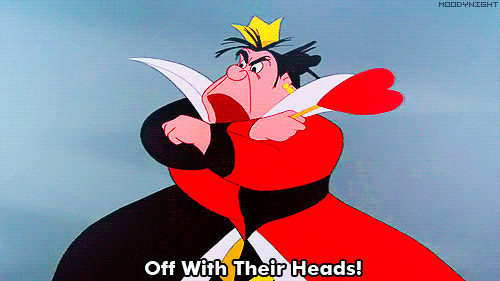 |
| Submitted by Marian from http://librarianproblems.com/ |
Sunday, April 20, 2014
Movies for Earth Day... Keep the Conversation Going
Family Friendly
|
|
"Fern Gully"
|
|
This movie immediately came to mind when
thinking of Earth Day movies worthy of making the top 10 best Earth Day films
list. The oil monster "Hexus" and the fairies of Fern Gully along
with the crazy bat hard to forget. If you have never seen this animated film
I highly recommend you do.
|
|
"March of the Penguins"
|
|
Learn about the Emperor penguins of
Antarctica, their monogamy, traditional breeding ground and more. Narrated by Morgan Freeman this is a fabulous Earth Day film.
|
|
"Into the Wild"
|
|
This Earth Day film represents getting in
touch with nature. Based on a true story, Christopher McCandless (Emile
Hirsch) leaves his life behind to pursue the freedom of living in the wild.
|
|
"Wall-E"
|
|
A computer animated sci-fi, this Pixar/
Disney earth day movie is the story of a future robot that must clean the
waste that now covers Earth. Love complicates his mission as he follows his
girl to outer space and changes the future.
|
|
"Earth" (2009)
|
|
This Disney Earth Day movie was released on
Earth Day 2009. "Earth" follows the lives of three families for one
year; the humpback whales, elephants and polar bears. You will see more than
just whales, elephants and polar bears. This is an educational film that
reminds us to be environmentally conscience.
|
|
"Oceans" (2010)
|
|
Another Disney Nature film is in theaters
now and is the perfect Earth Day movie. Disney will donate to save our coral
reefs in your honor if you see "Oceans" during opening week of
April 22, 2010. "Nearly ¾ of Earth's surface is covered by water and
Oceans boldly chronicles the mysteries that lie beneath." (Disney)
|
|
“Big Miracle”
|
|
While on assignment in a small town in Alaska,
a reporter spots three gray whales trapped in the ice and unable to
reach open water. Pretty soon, scores of people show up to help, including
his Greenpeace volunteer ex-girlfriend and a big tycoon who wants to drill
for oil.
|
|
“The Lorax”
|
|
To win the affection of the girl of his dreams, 12-year-old
Ted must track down the impossible in a city where everything is plastic – a
real tree. But first, he must learn the story of the Lorax, a grumpy but
charming creature who fights to protect the environment.
|
|
“Happy Feet Two”
|
|
This sequel to 2006′s Happy Feet stars
the dancing penguins, Mumble and Gloria and their new son, Erik, who’s
struggling to find his talents in the Emperor Penguin community. But when the
penguins discover a new threat to their home — global warming — it’ll take
everyone working together to save them.
|
|
For
More Mature Audiences
|
|
"Armageddon"
|
|
Starring a stellar cast, Bruce Willis, Ben
Affleck, Liv Tyler, Billy Bob Thornton; this Earth Day film is about a group
of blue collar drillers sent to NASA to stop an asteroid from colliding
with Earth.
|
|
"Deep Impact"
|
|
Another all-star cast, Morgan Freeman, Tea
Leoni, Robert Duvall and Elijah Wood attempt to prepare for and destroy a
comet from hitting Earth to prevent human extinction. A perfect Earth Day
movie and great reminder that we should not take mother nature for granted.
|
|
"Erin Brockovich"
|
|
A fitting Earth Day movie about a single
mom (Julia Roberts) that lands a job as a legal assistant and soon becomes
obsessed with helping to fight for victims of poisonous chromium from a gas
and electric company that is not environmentally responsible.
|
|
"The Day After Tomorrow"
|
|
Dennis Quaid stars as a climatologist that
must stop global warming and get to his son in New York,
which is experiencing the effects of a new ice age.
|
|
“An Inconvenient Truth”
|
|
A documentary on Al Gore's campaign to make the issue of
global warming a recognized problem worldwide.
|
|
“Planet Earth” Series
|
|
The series comprises eleven episodes, each of which
features a global overview of a different biome or habitat on Earth: From Pole to
Pole; Fresh Water; Caves; Deserts; Ice Worlds; Great Plains; Jungles; Shallow
Seas; Seasonal Forests; and, Ocean Deep . At
the end of each fifty-minute episode, a ten-minute featurette takes a
behind-the-scenes look at the challenges of filming the series.
|
|
